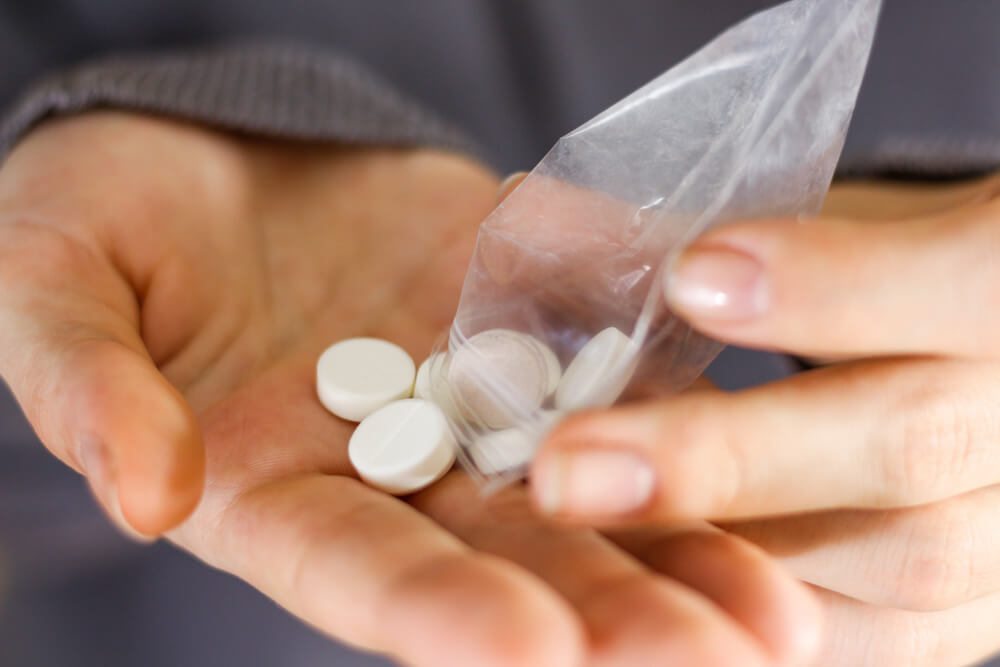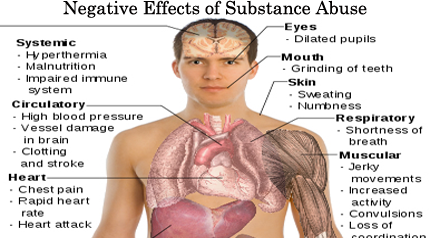Effects of Amphetamine Abuse
Every kind of drug abuse creates damage, but the abuse of amphetamine may create some of the most serious effects. Amphetamine is a strong stimulant that speeds up the heart and breathing and dilates the eyes. It increases blood pressure and makes the mouth dry. Bypassing all the body’s normal capabilities for creating energy, amphetamine makes a person feel alert and powerful. Fatigue and hunger go away so the amphetamine abuser does not eat or rest.

But an amphetamine abuser may fall into the trap of not wanting this feeling to end. He (or she) will continue to abuse amphetamine until the drug runs out or until the body just crashes, unable to sustain any more activity. It’s this pattern of extended binges of amphetamine abuse that really create the most serious effect on the body.
The amphetamine user will become emaciated and malnourished if these binges are repeated. He is likely to look gaunt and unhealthy. Since amphetamine is highly addictive, he will suffer strong cravings for the drug that bar his path back to sobriety.
The effects of amphetamine on the addict’s personality are similarly harsh and harmful. When heavily used or when it is abused at length, serious mental effects frequently occur, such as aggressive, paranoid hostility. There is even a form of psychosis that can occur as an effect of extended amphetamine abuse. Some people suffer from hallucinations that could prompt dangerously violent behavior.
Physically, the effects of heavy amphetamine abuse include chest pain, heart failure and convulsions. While the person still uses the drug, he is likely to be unaware of the serious effects of the drug. But if he tries to stop, he is going to find out what is really going on.
Coming off Amphetamine

A person trying to get off his steady diet of amphetamine is going to experience very sharp cravings for the drug. Many people will need professional help to keep them from going right back into using the drug again. If he does manage to stop using amphetamine, he will be hit with the full effect of all the damage that amphetamine has been doing. He will feel the full effects that the stimulant has been covering up. Like depression, disinterest in life, anxiety and severe fatigue.
He no longer has artificial means of boosting his mood or energy. He will feel the full effect of the nutritional and physical depletion that would naturally result from depriving the body of what it needs. He is going to feel terrible physically. The depression is likely to make him feel that he will never feel better in the future.
The good news is that he can be guided back to a recovery from amphetamine addiction. It takes a program that provides generous support as soon as the person comes through the door of the rehab facility. And it will take time to rebuild his interest in life and ability to create a new, sober life. The Narconon drug and alcohol rehabilitation program offers the steps that can bring this person back to ability and interest in life.
How the Narconon Program Rehabilitates the Amphetamine Addict
The first thing that must be done when a person arrives at a Narconon rehab facility is to begin to deal with the typical malnutrition suffered by the addict. Generous nutritional supplements calm the body and begin to lift the mood. Calming assists provide relaxation and reorientation. Within a very short time of his arrival at rehab, a person can begin to feel hope of real recovery.
Over time, an amphetamine addict will normally have lost his self-respect and personal integrity. In order for him to face life honestly again, he will have to recover these qualities. This recovery is built into the Narconon program. Each person will learn how personal integrity is lost and how it can be repaired. As they work their way through this phase of the program, it is common for the participants to describe a “weight being lifted” from their shoulders as they find relief.
What follows is learning how some associates can lead the recovering addict back into relapse and how these dangerous associates can be handled. This ability is basic to finding stable sobriety. From there, the person in recovery will learn how to address and overcome obstacles in life so that setbacks would not drive him back into drug abuse. Addiction can at last be replaced with a productive, enjoyable and drug-free life.













